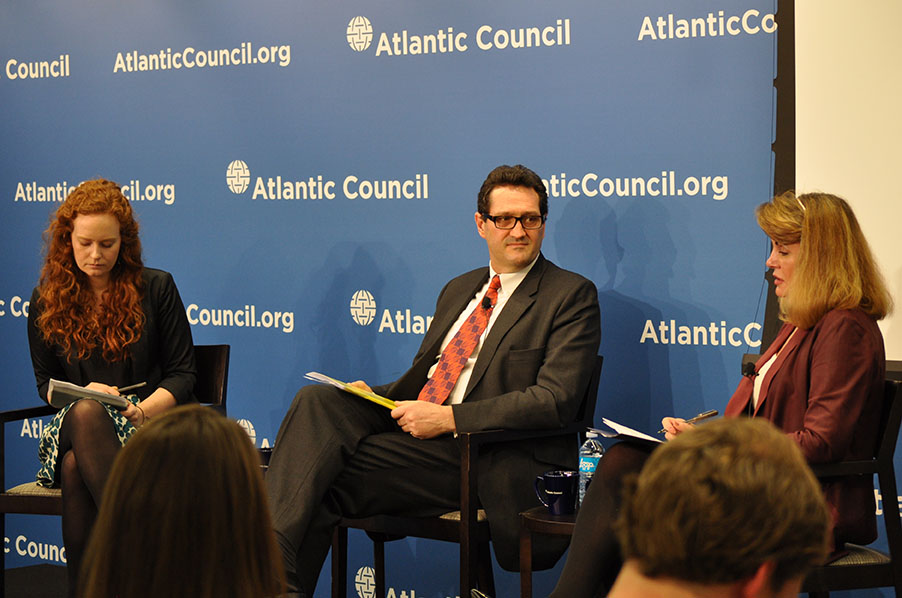
International partnerships, technological innovation, addressing cybersecurity challenges seen as critical to realization of environmental goals
International partnerships, technological innovation, and addressing cybersecurity challenges will be key to turning a global commitment to clean energy into reality, according to a senior US energy official.
More than 190 nations agreed to curb rising global temperatures through carbon emission reduction and renewable energy technology adoption at the climate talks in Paris in December of 2015.
Formally known as the twenty-first session of the Conference of Parties, or more simply, COP21, the Paris climate deal seeks to direct both developed and developing economies into a clean and energy-conscious future.
Melanie Kenderdine, Director of the Office of Energy Policy for the US Department of Energy, identified three policy challenges to realizing that goal: involve key industrializing economies, including China and India, as main energy partners with the United States and Europe; drive energy innovation to ensure renewable technologies are effectively developed and deployed; and ensure that security—particularly cybersecurity—remains at the forefront of energy policy adoption.
“We are investing a lot into research and development, but at the same time, working closely with the industry and country partners at certain steps along the way will be very critical to the process,” said Kenderdine.
Kenderdine spoke at an Atlantic Council event on February 3 alongside David Eyton, Head of Technology for BP. Annie Medaglia, Deputy Director of the Council’s Global Energy Center, moderated the discussion.
The Department of Energy launched the “Mission Innovation” initiative during COP21. “We are encouraged by what happened in Paris…That kind of global commitment is a huge step forward — particularly commitment from China,” Kenderdine said. The Mission Innovation agenda provides cross-cutting renewable energy investment-led partnerships between twenty countries, including the United States, China, Germany, the United Kingdom, India, and Brazil.
These Mission Innovation partners span five continents, as a result of which “70 percent of the world’s GDP is investing” in renewable energy technologies and will thus “dramatically increase the pipeline of clean energy innovation,” said Kenderdine.
From the private-sector perspective, Eyton noted that the most significant challenge for energy providers is “to be able to meet growing demand with less environmental impact as demonstrated by the landmark agreement in Paris, which is something that BP fully supports.”
The BP technology report authored by Eyton’s team describes how this post-COP21 challenge can be met through technological innovation. “Technology can unlock plentiful supplies of almost any form of energy from fossil fuels, to solar, to wind,” Eyton said.
Further, energy sustainability initiatives spurred by governments stand to benefit from partnering with private sector companies to meet increased global demand. Energy enterprises like BP can offer contextual regional expertise to public sector actors acting on COP21.
Eyton said BP is working with governments around the world, and particularly in China, to support future energy policy.
As investments in digital innovation are realized, security will play a larger part in the post-COP21 conversation. Kenderdine cautioned that “a one-size approach does not fit into all of these challenges” and “increased dependence on electricity and digital technology will bring new opportunities, but also new vulnerabilities too — specifically in cybersecurity.”
Even so, the “positive correlation between improving human development indices and electrification is an enormous opportunity,” Kenderdine said while describing the Department of Energy’s partnership with India in rural electrification.
Despite the seemingly daunting industrial and political challenge established in Paris, Eyton remains optimistic. “The question going forward is not will there be enough energy, but what form of energy do nations and consumers want” to define their future, he said.
Mitch Hulse is an intern at the Atlantic Council.
Image: From left: Annie Medaglia, Deputy Director of the Atlantic Council’s Global Energy Center, moderated a discussion with David Eyton, Head of Technology, BP, and Melanie Kenderdine, Director of the Office of Energy Policy for the US Department of Energy, in Washington on February 3.
